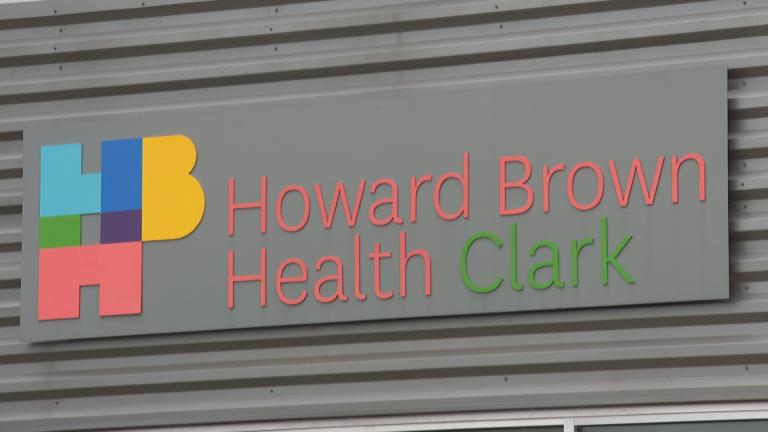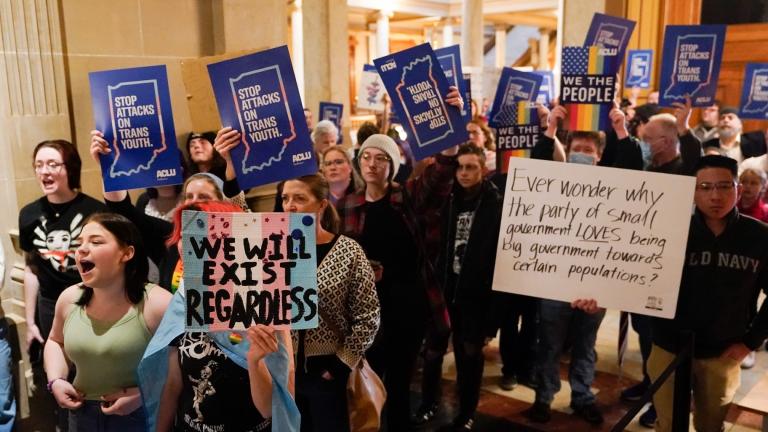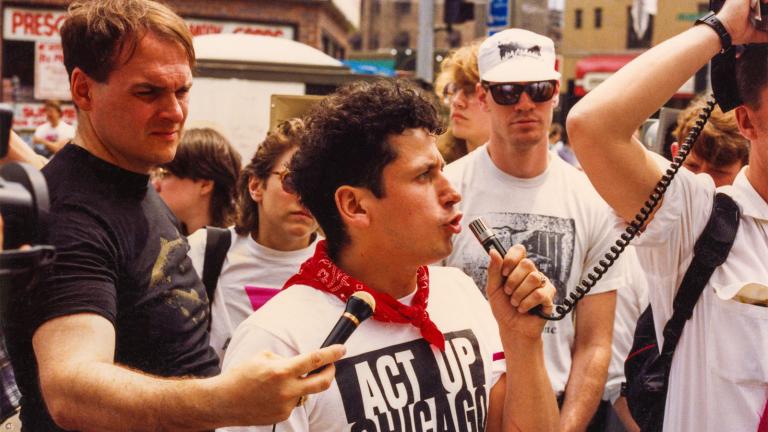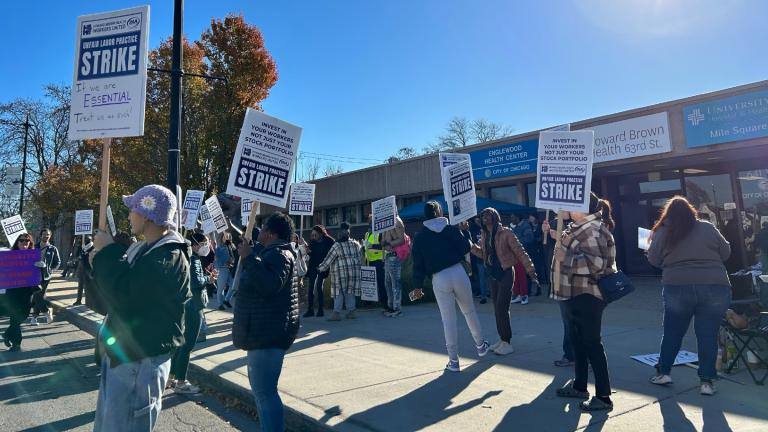In 2015, Gov. Bruce Rauner signed a law banning “gay conversion therapy” for minors — a scientifically discredited practice in which counselors try to change a person’s sexual orientation from gay to straight. The practice has been widely condemned as not only ineffective but harmful by a variety of medical and mental health organizations, including the American Psychological Association, the American Academy of Pediatrics and the National Association of Social Workers.
Julie Rodgers has written a book about her experiences as one of the faces of the gay conversion movement and her journey to being the first openly gay person hired by Wheaton College, an evangelical Christian college in Illinois.
The book is called, “Outlove: A Queer Christian Survival Story.”
“I wanted people to see, to understand what happened,” Rodgers told WTTW News. “I thought, surely if Evangelicals, if conservative Christians knew how harmful this teaching is, then they would be moved to change. And I wanted them to see how hard we try and that we really, really want to be good. And that we’re not just, out to be sort of like these debaucherous rebels — that we really are earnest. And I wanted them to just get a glimpse into the heart of somebody like me and hope that maybe they’ll be moved to compassion and embrace us.”
Rodgers was also featured in “Pray Away.” a Netflix documentary about the movement.
“Ex-gay leaders are doing what they believe is the best thing for all of us,” Rodgers says in a scene from “Pray Away.” “The problem is that they think ‘whole and healthy’ means trying to fit ourselves into something we can’t be. I wish that they would listen to us and believe us when we say that we really are so much healthier and happier now that we’re no longer a part of that.”
Watch a trailer for the film here. Below, an excerpt from “Outlove.”
I was fresh out of college, six years into my journey toward freedom from homosexuality, and I was still super gay. In the fourth-row, center-aisle seat at Living Hope’s weekly support group for people who struggled with same-sex attractions, I listened to Ricky Chelette, the executive director of Living Hope Ministries, preach a message about a parable in the Gospel of Luke.
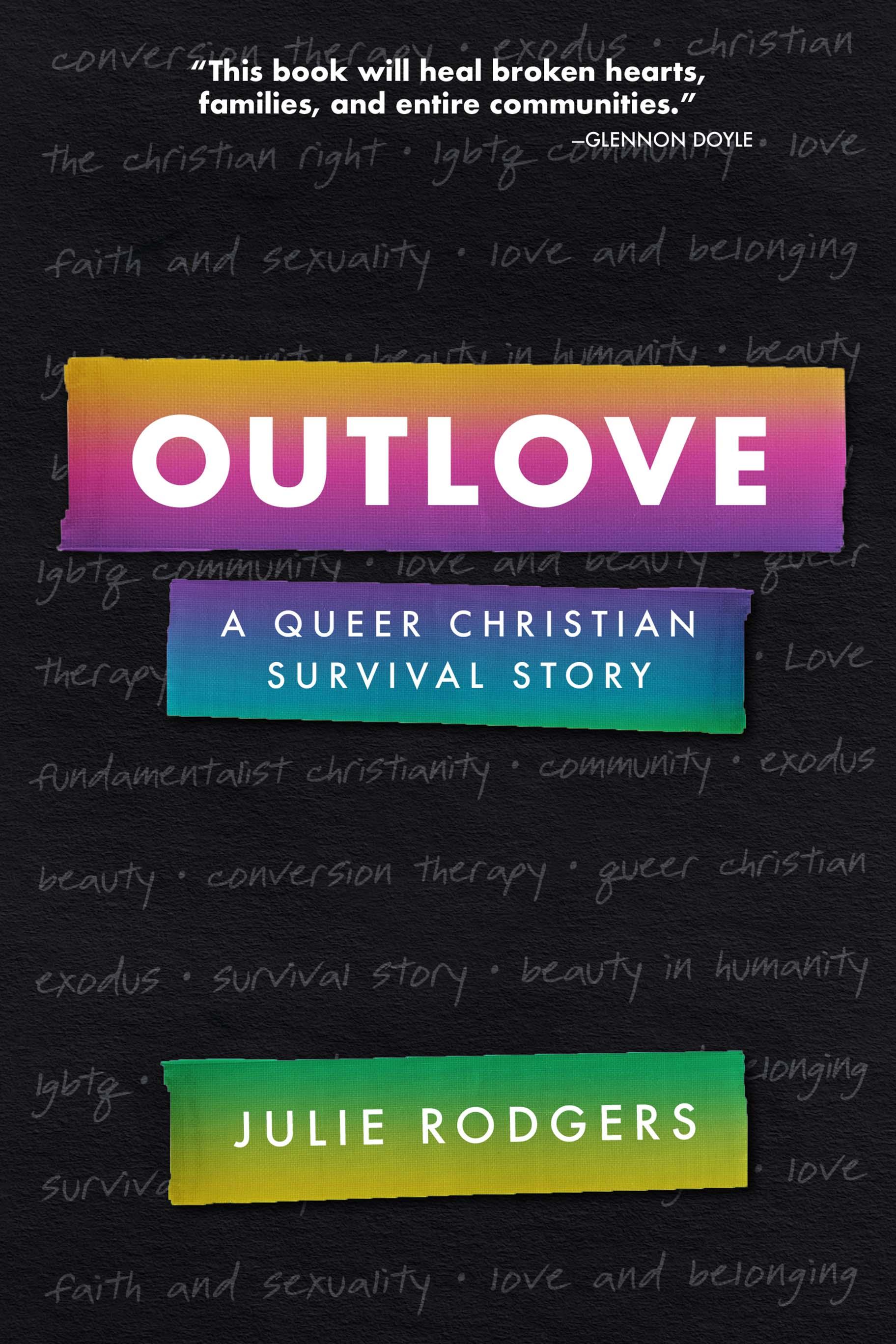 In the story, a son asks his father for his inheritance while his dad is still alive. Then the son goes to a far-off place and parties the money away. One day, after squandering his wealth, he wakes up in a literal pigsty and realizes he can go home. The whole way home, he prepares a speech for his father. He imagines himself falling at his father’s feet, pleading for forgiveness. He resolves to offer himself as a servant in his father’s house, where the servants—enslaved people—had a nice life compared to the ruins he faced in the faraway land. When the son finally turns the corner onto the road that ends at his father’s house, he’s stunned to see his father standing on the porch, looking down the road, awaiting his return. His dad runs to him, throws his coat around him, and wraps him up in his arms. The son falls to the ground to beg for mercy, but his father pulls him right back up, embracing him and weeping. Then he tells his servants to slay a fattened calf and prepare to throw a party—his lost son had come home (Luke 15:11–32).
In the story, a son asks his father for his inheritance while his dad is still alive. Then the son goes to a far-off place and parties the money away. One day, after squandering his wealth, he wakes up in a literal pigsty and realizes he can go home. The whole way home, he prepares a speech for his father. He imagines himself falling at his father’s feet, pleading for forgiveness. He resolves to offer himself as a servant in his father’s house, where the servants—enslaved people—had a nice life compared to the ruins he faced in the faraway land. When the son finally turns the corner onto the road that ends at his father’s house, he’s stunned to see his father standing on the porch, looking down the road, awaiting his return. His dad runs to him, throws his coat around him, and wraps him up in his arms. The son falls to the ground to beg for mercy, but his father pulls him right back up, embracing him and weeping. Then he tells his servants to slay a fattened calf and prepare to throw a party—his lost son had come home (Luke 15:11–32).
“Some of the people I love most in the world have followed in the footsteps of the prodigal son,” Ricky said to the roughly one hundred of us in the audience who were seeking healing for our same-sex attractions. “They’ve chosen to give in to their flesh, to turn away from the truth and embrace a debaucherous lifestyle.”
I thought about my friends from the ministry who had come and gone. Many of my closest friends had recently been kicked out after they broke one of Living Hope’s golden rules: no outside contact. We weren’t allowed to talk to each other without supervision because Living Hope leaders feared we would meet up and have sex. The ones I was still connected to looked nothing like the prodigal son Ricky described. They were seminary graduates, Sunday school teachers, earnest seekers. Far from having “gone to the dark side,” as Ricky described them, some of them still hadn’t had their first kiss.
“Just like the father in this story,” Ricky continued, “I’m standing on the porch with my arms wide open, waiting for my beloved friends, many of whom are like sons and daughters, to come to the end of themselves and return home.”
I was one of the people Ricky loved like his own kid. Sent to Living Hope when I came out as a teenager, I practically grew up in the ministry. I was at Living Hope’s support group on Thursday nights and the healing prayer group on Tuesdays. I lived with Ricky and his wife for a few months and in Living Hope’s recovery house for a couple of years. I ate lunch at Ricky’s every Sunday afternoon. I was his go-to dog-sitter, his ride home from the airport, his protégé, and his first pick to give my testimony before he spoke to churches about hope for healing from homosexuality. Where I come from, good kids aren’t gay, and all I wanted was to be good.
What a horror, then, to listen to Ricky’s sermon about the prodigal son, fully aware that I was still a lesbian. What’s a queer person to do in that situation, when the only people we’ve ever known and loved believe our love is disordered and our bodies are broken? How does someone in their midtwenties, whose brain is still developing and who’s never known life outside of fundamentalism, begin to imagine an honest and integrated life? Was there any other way for me to be good, a way that didn’t require me to shut down, suppress, fragment, and annihilate integral parts of myself to belong?
“We serve a Father in heaven who longs to throw us a party,” Ricky said to close out his sermon. “All we have to do is come to the end of ourselves and come home. So here’s my question to those of you who might be in the far-off place tonight: Are you ready to come home?”
In the eyes of my community, I was home. I was denying myself, which meant no sex, love, or intimacy with women—no handholding, no snuggling, no kissing, no fantasizing, no daydreaming about creating a life with a loving partner. That night, though, I couldn’t help wondering, At what cost? And was it really me who was home, or was it the image of myself I presented in order to fit into a religious system that either couldn’t or wouldn’t make room for queer people who told the truth about themselves? In the years that followed, I often thought, Maybe they just don’t understand. Maybe if someone like me told the truth about myself and stayed in the Evangelical church, they would see the humanity of queer people and be moved to embrace us. Maybe we could grow in love together.
Excerpted from Outlove: A Queer Christian Survival Story by Julie Rodgers
© 2021 Julie Rodgers. Published by Broadleaf Books. Used by permission.

